El trabajo editorial - FAQ
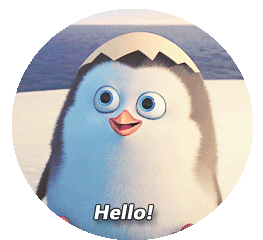
We are happy to have you on board as an editor!
This document is designed to help you make the most of our activities here! Please browse through the FAQ, and do not hesitate in contacting us should you have any questions.
Please also find a detailed explanation of your tasks as an Exploring Economics Editor below.
What should I do first after joining the editorial team?
Edit your editor profile
Please add a text and a picture that will appear on our team page. You can edit this in your user profile settings. You can decide not to publicly appear as an editor on the page.
Introduce yourself on our Slack channel
You can join Slack using this link if you haven't yet. Introduce yourself to the #general channel.
Go through the platform...
...and make sure that you have read through different sections. As an editor, you are mainly responsible for the content in the Discover & Study section. As the first act as an editor, go through the content that interests you and decide whether you want to:
- Give feedback on what could be improved about one material that is already uploaded to EE.
or
- Submit new content that you feel like is missing on our platform. You can find specifications on what type of online materials we are looking for here.
Do this and let us know about failure & success on Slack in the channel #editorteam
With this, you should have made your first Exploring Economics experiences. You will find more explanations in this FAQ section & the next steps will be discussed on Slack.
What is expected of me as a member of the EE editorial team?
When applying for the Experience you had to choose your level of engagement. Level B is the of the editorial team.
You can understand Level A and C as ways to invest more (Level C) or less time (Level A), depending on your availability. We want to offer you the flexibility of changing tracks. Please contact us. Read more on each below:
Level A: Material scout
The time necessary: 1-5 hours per month
As a material scout, you are feeding the discover and study section with videos, podcasts, online courses and other teaching material. You will search, classify, summarize and comment new content, which is published with your name on the website. You can focus on a specific school of thought or topic of your interest that you want to strengthen on Exploring Economics. Find more information on what kind of material Exploring Economics features here.
Level B: Editorial team member
The time necessary: 1-3 hours per week
On Level B, you join our editorial team. Our editors are the beating heart of Exploring Economics!
Besides suggesting new material, they also review the material suggestions by material scouts. You can focus on a specific economic topic or perspective and discuss how you can find or create new material on this topic on Exploring Economics. Find more information here.
The editorial team has different tasks:
Review suggested material
You review the new content, which has been suggested via the online form, and either modify, reject it or publish it. The material should be relevant for EE (see here for our guidelines on the academic standards)
Search for new content
Editors can also look for new content themselves just as persons active on level A "Material Scout" do (see here for more). We have a list of contents that haven't been integrated and that you can pick from (here).
Re-Review already uploaded content
Since the platform is online since December 2016, some of our linked content could be expired or irrelevant by now.
Log in to the CMS with your account. In this table all content (that has been suggested to EE is collected. In the CMS you can filter by your topic/ perspective, by published/ not published, language etc. to choose content that you want to review. When you look through the content on the page or the CMS please check and note whether the content was
- correctly uploaded,
- still relevant,
- duplicative,
- assigned correctly,
- has an incomplete summary
- has an editor comment or
- if all links are still working.
If you found something to improve please correct it and leave a short notification in the relevant editor working group on Slack. IF there are bigger issues (e.g. you think the material is problematic, politically biased, etc.) discuss it with your editor working team on Slack and potentially the monthly editor meeting.
Participate in editorial discussions
The editor group provides a space for discussion and experience exchange on challenges and best practice tips for scouting new material.
This could be e.g. which platforms and other techniques you are using for scouting material, what type of contributions are especially relevant or missing in the discover section, or how you could strategically expand the scope and depth of the material on EE. We encourage and aim to support inter-disciplinary and multi-paradigmatic work. Meaning that you should feel encouraged to also look into editor teams that you are not part of and join the discussion or even work together on specific material submissions.
There should be an open-minded and supportive way of sharing knowledge, expertise and opinions so that each editor can learn new aspects of the respective perspective or topic.
Level C: Material producer
The time necessary: depending on the project, at least 3 hours per week
You can produce essays, dossiers, wiki-articles or creative content and publish your material under your name on Exploring Economics. As in journal publishing, we conduct a professional review process – however, your text will be freely available on our e-learning platform and serve as learning material for our users. Find more information here.
How does the peer review process work?

Content is submitted and the global content facilitator assigns it to a working group. The working group edits, corrects and decides whether the content should be published.
When you or anyone else submits a content
- You will receive an email with the task to review this content
When you review content
- Please use the internal comment box to protocol the edits that you have made (e.g. changed a sentence in the summary).
- Please include your vote on this submission. You can accept, refuse or vote for edit & re-submit.
When you decide on publication
- It needs three editors to agree for new content to be published. The final publication will be done by the managing editors.
How does the CMS work?
CMS is the content management system. It is a software application that can be used to manage the creation and modification of digital content.
Important General points

Whenever you edit something it is important to ‘Save’ before you refresh or leave the page. You can find these buttons on the top and the bottom of each page. Use the ‘Save and Continue’ button in case you want to stay on the current page. Use the ‘Save and add another’ in case you feed in new content through the CMS and want to add another right after.
Step 1: The Dashboard
After you log in you see the dashboard https://www.exploring-economics.org/en/admin/
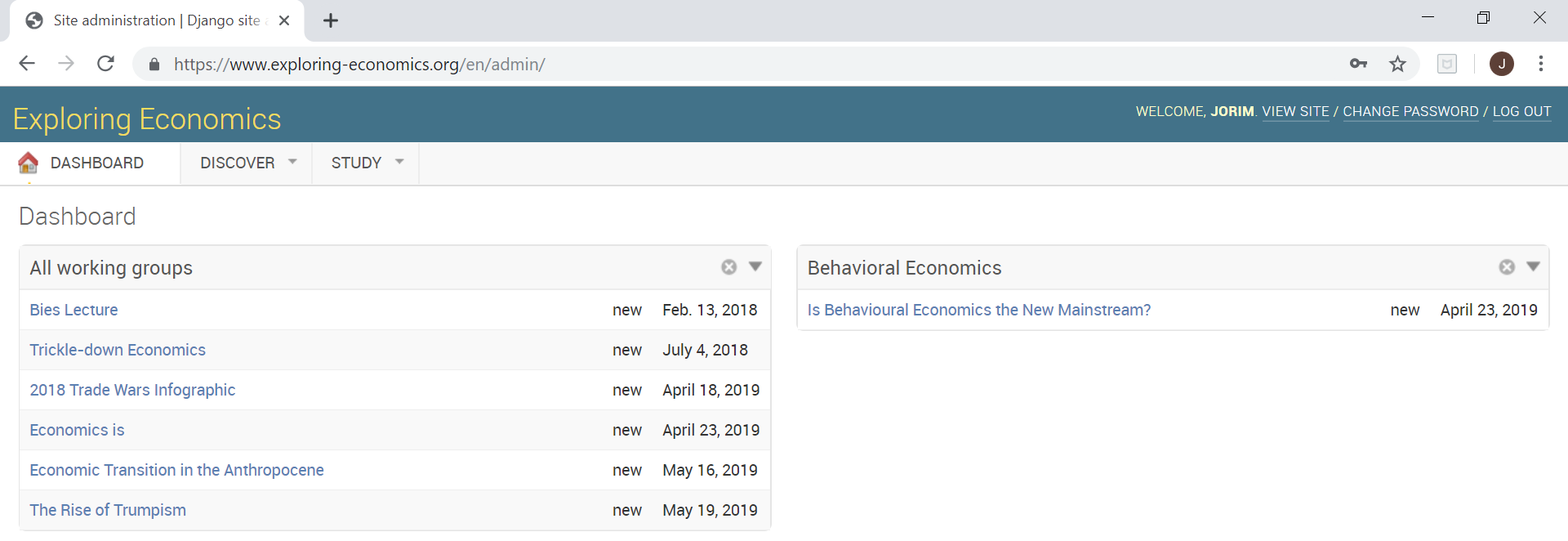
This shows you all newly submitted content in your working groups. Select one and start working. In Discover and Study, you can find all the content of these working groups that has been submitted in the past.
Step 2: Change Content – Review & Edit
Base information
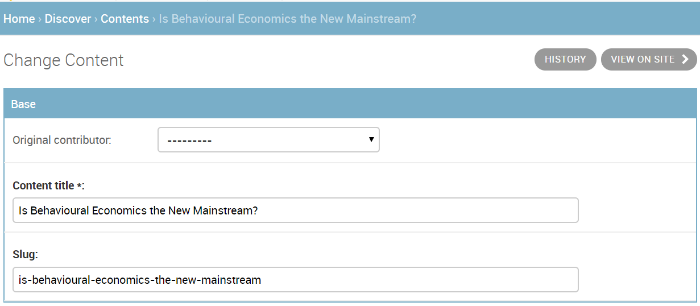
The Content title should be comprehensive and interesting. The Slug can’t be longer than 50 characters. You can change the original contributor.
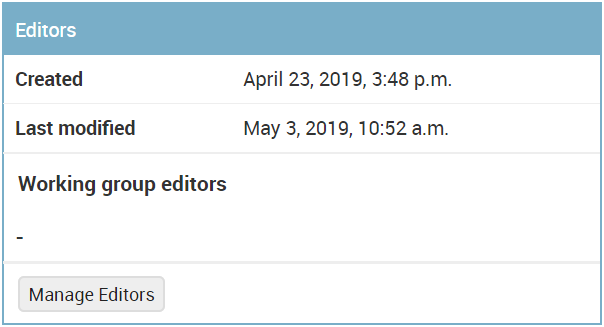
In case you submitted as a group you can add other working group editors by selecting ‘Manage Editors’. Do also add yourself if you have edited the content (e.g. wrote an editor comment). Original contributor and working group editors will appear on Exploring Economics below the published content (example here).
In the following a few entries that you might have to edit are explained in further detail:
1. Summary and Facebook teaser
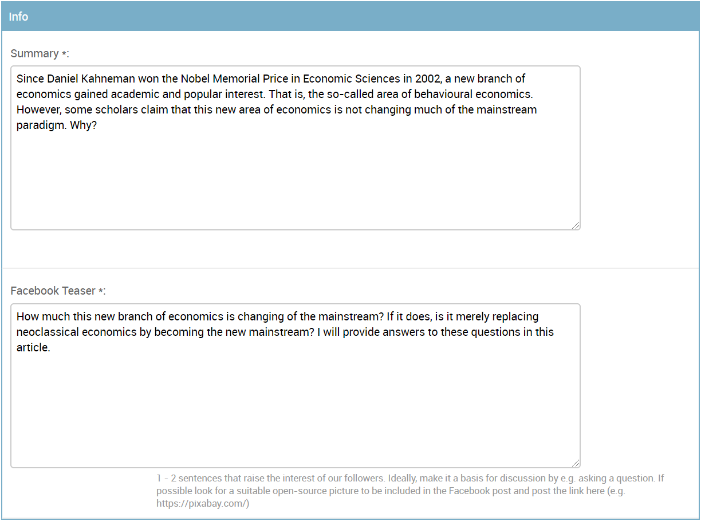
Firstly, the Summary and the Facebook Teaser do not appear on the page. The Summary should be 1 – 2 sentences. These are e.g. shown when the page is shared on Facebook.
Before you cut the Summary copy the content into the Full-Text Box, which will appear on the page. Both for the Editor comment and the Full Text you can make use of the HTML editor. You can view your changes on the page, but don’t forget to save first.
2. Link and preview picture
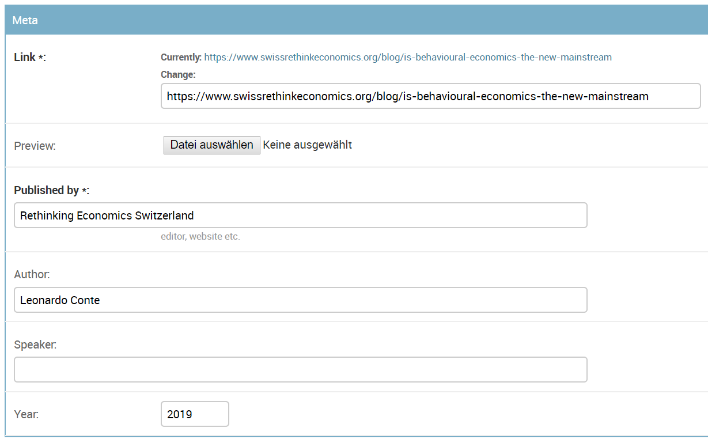
Secondly, you should review the Meta data provided. Links to YouTube should be the extended link (youtube.com/watch….) and not the shortened link () for the video to be directly embedded on EE.
Please do provide a Preview picture if none is provided, but use free image libraries for your search (see e.g. Unsplash).
3. Choose Topic and Tags
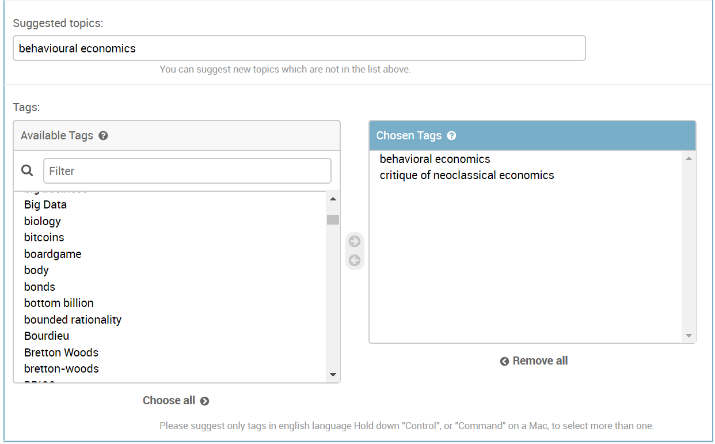
Lastly, the contributor has to add topics and tags for their contribution. In case they suggest a new topic and you think it makes sense to add this please let the global facilitator know.
Also, if you see any mistake in the chosen tags that you would like changed please let the global facilitator know.
Please leave a note on your edits or opinion in the comment field on the right-hand side.
Step 3: Let the other editors know about your edits
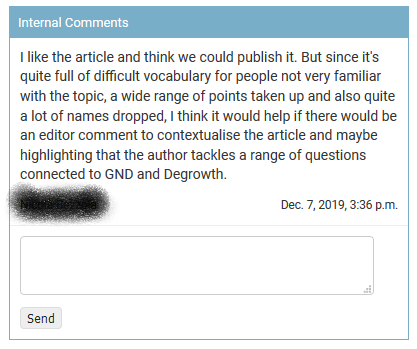
After you have made your changes, please let the other editors know, in short words, what you have changed.
Please also use this field for your opinion on the suitability for EE.
Step 4: Decision about Publication Status, Editorial Recommendation and Frontpage promotion
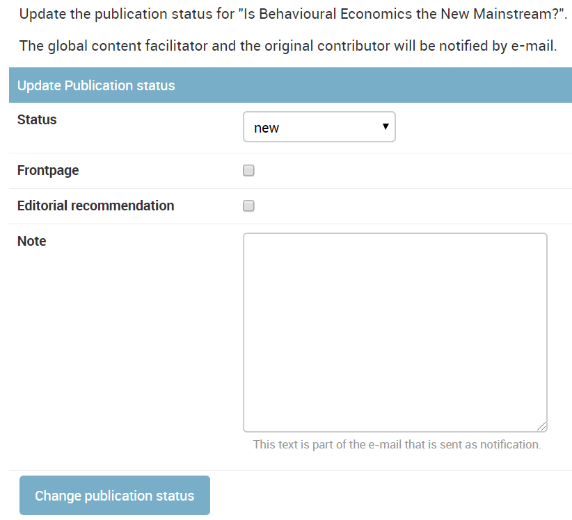
When three editors agree we publish the content.
To publish, we select Change publication status in the blue box on the right and then select Reject, Review or Publish. We give a short feedback to the contributor by including a note. If the new content is in our opinion very relevant or novel we add it as an:
- Editorial recommendation (it appears on the sidebar at relevant places in the discover and orientation section)
- Frontpage (it is promoted on the EE start page)
Tips and ideas for the work in editor working groups
Here are some ideas for the Exploring Economics Editorial Work on specific topics:
Currently, our editorial team is organised as one big group reviewing all new resources.
In addition to this, we encourage the work in smaller editor working groups. As in the past, these are built around a certain economic perspective/school of thought (e.g Feminist Economics) or a certain economic issue (e.g. inequality) instead.
Why should I join an editor working group?
If you want to suggest new material for EE on a regular basis and deepen your knowledge in a certain school of thought or economic issue, you should join an existing editor working group or start a new one. In an editor group, you will work together with 3-10 interested students, PhDs and professionals to discuss material suggestions and post it on the platform and our social media channels.
What do I do in an editor working group?
- You review submissions and online resources that are close to your interest and expertise. Newly submitted content that fits your group is regularly assigned to you instead of the big group.
- You can search specifically for material on this topic.
- Additionally, you can start smaller or bigger projects to improve what Exploring Economics offers one your specific topic (see below).
What do smaller editor working group projects look like?
You can create a slider in the Discover section. The motivation is to promote topics that are relevant and underrepresented on Exploring Economics. By creating a slider we can place the contents in the immediate sight of the users.
For this:
1. Please check EE for already uploaded material that related to your topic, issue or economics perspective.
2. Then start collecting content.
3. Let an EE team member know that you would like to create a new slider. By deciding on a tag word, all new contents with this tag word are automatically assigned to the slider.
4. Submit, edit and publish new contents with the tag word.
5. Decide how you want to set the focus, social media advertising and other content related issues regarding your topic.
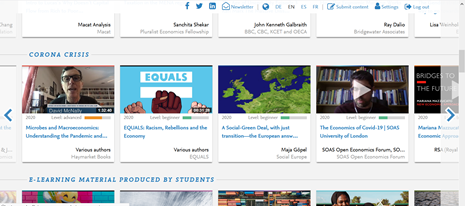
What do bigger editor working group projects look like?
You could create your own dossier content regarding a topic see here.
We are not enough people in the group. How can we get more support?
When looking for further support it is important that you give concrete descriptions of the tasks at hand. You can look inside the team by posting in the #general channel. But you can also recruit from outside the team.
What else can support our teamwork?
- It is important to have one or two persons in the group that commits to act as group facilitators. They would keep an eye on the whole process and serve as contact persons to facilitate communication with the EE team. You can switch the role of the facilitator periodically, though we prefer to have one contact person for a longer time period.
- All the editor groups make their work transparent on Slack. Each working group has one channel, where you can organize your work and post content updates. Please use this channel regularly for updates, also if you are meeting, on which other platforms you are communicating (e.g. Email) and what you are planning to submit. In this way, other editors should be able to see what you are working on to have the possibility to support or even join your work.
Interested? Join one of the existing editor groups or start a new one.
What kind of groups can I join?
Specific project or topic groups
These groups also have Slack channels. They are planning to work on specific projects (i.e. creating a slider, dossier and increasing the number of MOOCs recommended on EE)
- Racism & Economics (Discrimination, Inequality, Racism in Economics)
- Online Courses & MOOCs in the Study section
- Degrowth (together with Ecological Economics)
- Macro-Finance & central banking
- Covid Economics: policy responses (economic theories/models behind it)
Economic perspectives
These groups are mostly not working on bigger projects. If you join these groups you get only get the submissions assigned to you that fit this economic perspective. Join one of these groups if you have expertise in the economic perspective.
- Mainstream/ Neoclassical Economics
- Behavioural Economics
- post-Keynesian Economics
- Marxian Political Economy
- Ecological Economics (this group is currently also working on Degrowth)
- Austrian Economics
- Complexity & Evolutionary Economics
- Feminist Economics
- Institutional Economics
How?
Write to us on Slack and let us know. We'll add you to the group(s)!
